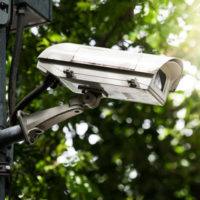Explaining Premises Liability and Negligent Security in Maryland

Today we will explore two important topics in Maryland personal injury law – premises liability and negligent security. In both cases, we will explore the legal conditions under which the owner or tenant of a property is responsible for injury or wrongful death that occurs on their property.
What is the Maryland Approach to Premises Liability?
Premises liability is an area of personal injury law that addresses injuries or harm occurring on other people’s property. Essentially, premises liability allows the injured person to sue a landowner, property possessor or tenant for injuries that result under certain circumstances. The law is generally intended to protect third parties from the risk of injury created when property possessors chose to ignore hazardous condition or defects on their property.
As with most personal injury situations, premises liability cases stem from a duty of care owed under the law. There are a number of considerations for evaluating whether such a duty exists at the time of an occurrence. Among other things, the injured party must demonstrate that (1) he or she was lawfully on the property at the time of the subject occurrence; (2) that the property possessor knew of the hazardous condition or defect, or through the exercise of reasonable care should have known of the hazardous condition or defect; and (3) that the property possessor failed to remedy the hazardous condition, failed to undertake reasonable safety measures to address the hazardous condition, or failed to warn of the hazardous condition.
There are many situations where a property owner or tenant may be responsible under premises liability, including harm or injury due to:
- Maintenance problems;
- Property or construction defects;
- Building Code violations;
- Slip and fall situations;
- Snow, ice or other weather conditions;
- Elevator or escalator incidents;
- Animal bites or attacks;
- Swimming pool or amusement park accidents; and
- Fires, floods or toxic chemicals.
What is the Maryland Approach to Negligent Security?
Many victims of crime do not realize that the possessor of property where illegal conduct has occurred may be liable for their injuries. Negligent security which is sometime referred to as inadequate security is a specific type of premises liability allowing injured parties redress for crimes and other violent acts – including assault, battery, sexual assault, rape, robbery, and homicide – on private property and in business settings.
Negligent security cases are predicated on a duty imposed or landowners and business owners to undertake reasonable efforts to protect lawful visitors, business invitees and patrons. The general considerations discussed in the section concerning Premises Liability also apply in Negligent Security cases. Additionally, an injured party must prove that a criminal happening was reasonably foreseeable on the property, and the property possessor or business nevertheless failed to either (1) take steps to mitigate the risk to invitees, patron and lawful guests on the property; (2) address known security problems or insufficiencies; or (3) provide adequate warning of the risk of injury on the property. Liability is generally imposed in circumstances in which a crime is foreseeable and reasonably preventable.
The reasonable security efforts necessary to maintain a safe and lawful premises vary from case to case, and may depend on the nature of the establishment and the physical layout of a facility or property. Negligent security can endangers individuals at, among other places:
- Hotels
- Apartment complexes;
- Restaurants;
- Nursing homes;
- Retail stores and malls;
- Schools and Universities;
- Amusement parks;
- Mass transit and public transit terminals;
- Parking lots; and
- Nightclubs and bars.
An inadequacy or defect in security efforts can result from a myriad of things including, but not limited to, a property possessor’s failure to staff a sufficient number of security guards; failure to install proper lighting; failure to install sufficient security cameras or CCTV facilities; failure to place proper or working locks on doors and windows; failure to erect gates or have barriers in place; and failure to reasonably inspect patrons or their parcels. There may also be negligent security where certain characteristics of a property facilitate criminal conduct; a property owner fails to implement additional security measures on a property where there have historically been criminal happenings; or when a land lord fails to conduct a background check on an employee or hires someone with a criminal background.
For an example of negligent security consider an electronics store that maintains an adjacent parking lot. The parking lot is poorly lit and lacks security personnel or cameras. If multiple customers are robbed or mugged in the parking lot, the electronics store knows or should know of a security vulnerability. If the electronic store ignores that security vulnerability and a subsequent criminal happening occurs in the parking lot, then the electronics store may be liable under the doctrine of negligent security.
It is important to remember that the situation above is merely an example. There are many situations where a property owner or tenant may be responsible under negligent security.
Let Us Help You Today
Whether you are dealing with premises liability, negligent security or other aspects of personal injury law, the road to recovery can seem unmanageable. That is where a knowledgeable personal injury attorney can make a true difference, protecting your rights and fighting diligently for a positive outcome.
If you have been the victim of crime in Baltimore or the State of Maryland, and believe that the crime may have been avoided or prevented, we stand ready to help you. Featuring offices in Baltimore, Maryland, the attorneys at Iamele & Iamele, LLP have a knowledge base concerning premises liability, negligent security and other aspects of personal injury law. We are committed to dedicated representation in complex negligence cases. Please feel free to contact us at your earliest convenience for a free initial consultation.

